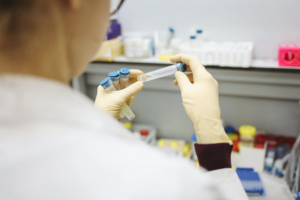
The Most Common Types of Coronavirus Tests Explained
Did you know that there are a few different types of coronavirus tests? It’s essential to be familiar with all the different types because each can provide valuable information about your health. What kind of coronavirus test do you need, and how to get CVS test results? It is a question that many people ask. The answer to this question depends on what type of virus it is, the severity of the symptoms, and any other conditions present. This blog post will go over the most common types and what they’re used for.
PCR Testing
 One of the most common types of coronavirus tests is PCR testing. PCRs are used to detect specific DNA or RNA sequences in a clinical sample. For example, suppose you have pneumonia, and your doctor suspects a coronavirus infection might cause it. In that case, they will order PCR testing on one of your respiratory samples (for instance, sputum, bronchoalveolar lavage fluid).
One of the most common types of coronavirus tests is PCR testing. PCRs are used to detect specific DNA or RNA sequences in a clinical sample. For example, suppose you have pneumonia, and your doctor suspects a coronavirus infection might cause it. In that case, they will order PCR testing on one of your respiratory samples (for instance, sputum, bronchoalveolar lavage fluid).
If your doctor suspects that you might have a coronavirus infection somewhere else in the body (such as the gastrointestinal tract), they may order PCR testing on one of those samples. There are different types of coronaviruses, and each type can affect other parts of the body. PCR testing can tell you which kind of coronavirus is present.
LFT Testing
LFT stands for Lateral Flow Test. LFTs are commonly used tests that rely on antigen-antibody interactions to detect the presence of coronavirus antibodies. These tests usually take only a few minutes. They require very little training to run, making them useful for situations where you don’t have access to advanced equipment or highly trained personnel (for example, in developing countries).
LFTs can be used to diagnose a coronavirus infection in people with symptoms and determine how long the person has been infected. They cannot tell you which type of coronavirus is responsible for the disease or whether it’s still active, however. In hospital laboratories, LFTs are often paired with PCR testing when someone is suspected of having a coronavirus infection because the tests can provide information about different types and how long someone has been infected.
Antibody Testing
 Antibody testing is a commonly used coronavirus test that relies on antigen-antibody interactions to detect the presence of coronavirus antibodies. These tests usually take only a few minutes. They require very little training to run, making them useful for situations where you don’t have access to advanced equipment or highly trained personnel (for example, in developing countries).
Antibody testing is a commonly used coronavirus test that relies on antigen-antibody interactions to detect the presence of coronavirus antibodies. These tests usually take only a few minutes. They require very little training to run, making them useful for situations where you don’t have access to advanced equipment or highly trained personnel (for example, in developing countries).
Antibody tests can be used to diagnose a coronavirus infection, determine whether someone is actively infected or not, and monitor the effectiveness of treatment. However, antibody testing cannot tell you which type of coronavirus is present. In hospital laboratories, PCR testing may be paired with antibody tests when someone is suspected of having a coronavirus infection. The tests can provide information about different types and how long someone has been infected.
As you can see, there are several different kinds of coronavirus tests that all serve their purpose in helping your doctor make an accurate diagnosis. If you’re concerned about any symptoms or think you may have been exposed to coronavirus, talk to your doctor about what types of testing might be suitable for you.
